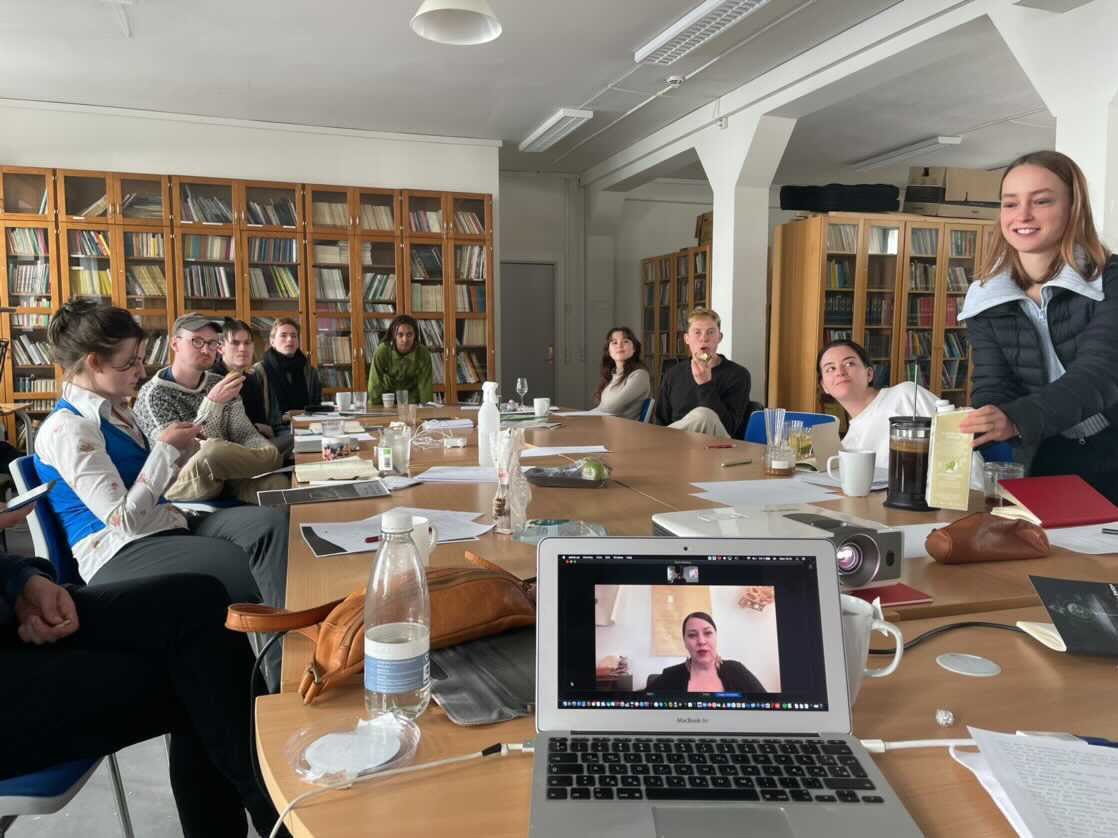Utopia at The Danish Academy for Creative Writing
It was a delightful and VERY early morning talking to Ursula Andkjær Olsen and Nazila Kivi’s class on Utopia at The Danish Academy of Creative Writing. I spoke about the role of electricity and time in my artwork. Great questions from Ursula Andkjær Olsen about the intersection of alchemy and skincare from my chapter in The Familiar Algorhythm on THE TELEOLOGY OF THE ALCHEMIST IS GOLD. It was one of those questions I'm not sure I had a great answer for, especially at 6am so it's a gift to go back on reflect on this passage from something I wrote in 2016.
"When the Alembic was invented by (not that) Cleopatra, an Egyptian alchemist and philosopher, it was used initially to conjure up medicines and a little down the line, perfume. We often speak of the five senses and we have a term for those without vision, we call them blind. We have a term for those without hearing, we call them deaf. Each of these has their own culture, and each of these cultures has cultivated their own system of navigation. But, for good reason, there is no common term for he without a sense of smell--is it too rare or painful to consider? The sense of smell seems unimportant, if not an unpleasant burden, until it flees. Then it’s real value is found, as direct communication to the amygdala. It is a key to memory pure and simple. Without it, we are lost in a way for which we have no words, no poetry. Perhaps perfume started as a prosthetic memory for those whose sense of smell was slipping away. (Not that) Cleopatra’s cosmetics formed the backbone of De ornatu mulierum, a chapter in the Trotula, a 12th century text on women’s medicine that was transcribed time and again until all the new authors were men. Her work hidden in the Trotula intersected the rise of the perfume trade, a fact perhaps overshadowed by rumors that she produced the Philosopher’s Stone as early as the 3rd Century. The Philosopher's Stone promised the transmutation of the base metal lead into precious metals, gold and silver, like wine into blood, as well as the extension of life. It was a panacea against death. Was there a connection between the search for youth and the secret concoctions of skin cream made with crushed pearl and shea and Argan oil? Could the Philosopher’s Stone extend life in the way perfume amplified memory? What we know now is that Madam C.J. Walker picked up (not that) Cleopatra’s mantel almost two millennia later."

